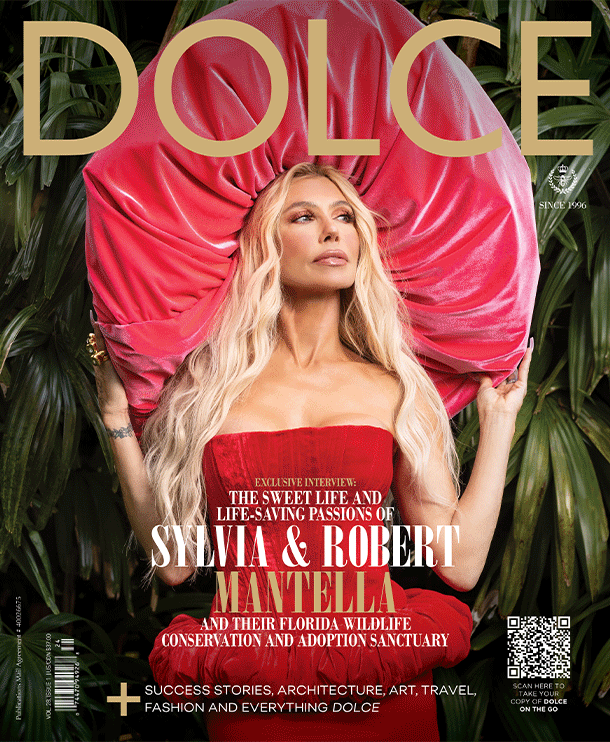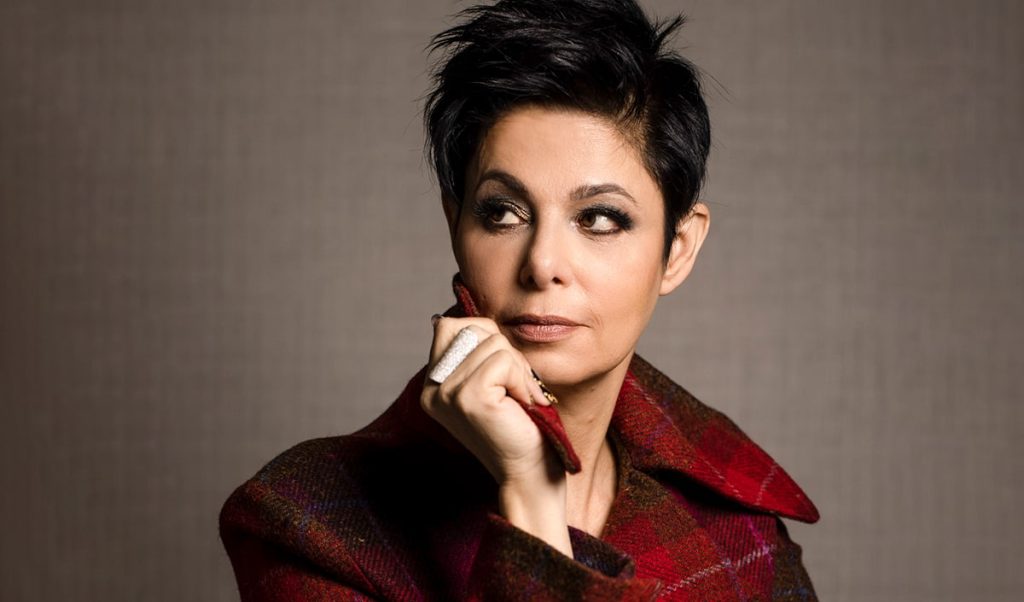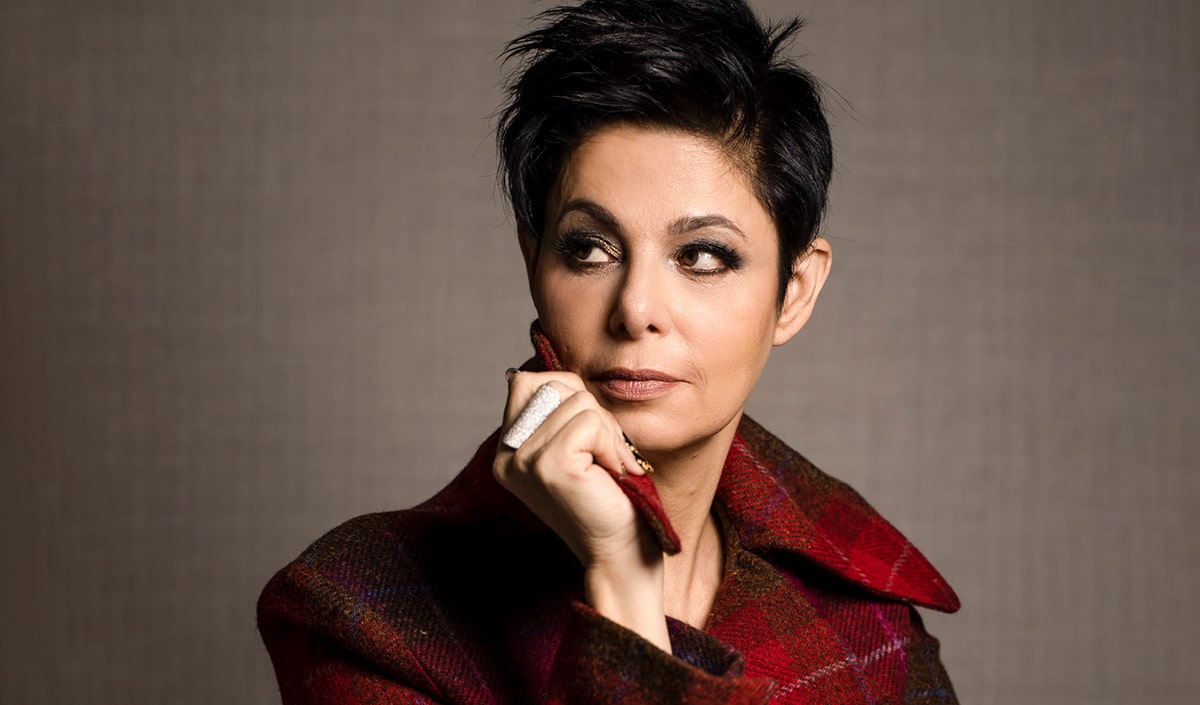Marie Henein: “Life Isn’t Built On Dreams — It Must Be Taken By Force”
She is widely considered Canada’s leading criminal defence lawyer. We sat down with Henein to learn more about how she unapologetically owns it all — legal and otherwise.
What is the psychology behind a woman’s choice of lipstick? Does a light pink signify a bubbly, outgoing personality? Does a shade of dark red belong to a seductive vixen? I thought back to these questions, which perhaps we’ve all carefully examined and debated with friends at one time or another, as I walked into the penthouse at the Hazelton Hotel in Toronto and caught the outline of a set of lips on a coffee cup by the sink. These lips wore a deep, exquisite midnight plum — moody, edgy, dark. These lips belong to Marie Henein.
Henein is widely considered Canada’s leading criminal defence lawyer. This recognition is an accolade that represents not just a technical mastery of the law and a broad advocacy skill set, but also an exceptional level of toughness and determination. This is perhaps especially true for a woman who has reached the pinnacle of an otherwise male-dominated profession, and there is no question that Henein is not one to ever take “No” for an answer. Exhibit A: her Arabic tattoo, which translates to “Life isn’t built on dreams — it must be taken by force.”
It’s this “no excuses” attitude that compelled Henein to branch out and start her own firm after working with her former partner and mentor, Edward Greenspan. “In an industry that is very male-dominated, criminal law, in particular, and criminal defence work, it was very important for me that a female was on the letterhead. I wanted to know whether or not I would be able to make it out on my own, to be honest. It just got to the point where [I thought], I just have to try; I just have to know if I’ve got the chops or not. That was really what was important to me; it was that I wanted to be first chair, not second chair, I wanted to be the first name on the letterhead. I wanted to see if I could do this and I wanted to do it, because, in part, the industry doesn’t necessarily welcome females and certainly [not] females in leadership roles. I didn’t know if I was going to succeed or fail. I was just going to give it a shot.”
Despite any public criticism she may receive, Henein does not feel victimized, unless, of course, it’s as a self-described “fashion victim.” “My mother was obsessed with fashion, my grandmother was a seamstress and my family had a clothing store. My uncle, who moved to New York, was obsessed, so when I’d go to New York, that’s what we would do. We’d come up with all sorts of things together, including vintage Trash and Vaudeville in the East Village. I’ve always loved it. I think it’s creative and fun; I find it uplifting. It can be profoundly artistic.
I’ve always found it to be a beautiful thing and a thing that brings me joy.”
One can’t help but conclude that Henein doesn’t have any issue standing apart from the crowd. In staid courtrooms across Ontario, her wardrobe, which she describes as “a little gothy, a little punky, edgier than traditional,” announces her presence before her oral submissions do.
Notwithstanding her outward image, in speaking with her and reading her latest memoir, Nothing But the Truth, it’s clear that Henein is multilayered, multifaceted and has a wide array of interests and influences that make her who she is. As she explains, the scrutiny that comes with being a high-profile criminal defence lawyer comes with its challenges. “It can be exhausting and it is exhausting, for sure, mentally draining and challenging, and all of those things. I’m not saying there aren’t days where you’re at your wit’s end. I don’t want people to think, Oh, she’s got it all together. That’s not true. I struggle as much as anybody else, but I think I just try to bring perspective to myself. What is my struggle? My struggle pales in comparison to people who are really having a tough time managing work and managing their family life. Think of the devastation COVID-19 had on so many women, so many racialized women, who did not have the ability to easily work from home.”
It’s that same humility — in addition to her tenacity and skill — that has contributed to her professional success. “If you walk into the courtroom thinking you’re the smartest person in the room, that’s a really good way to fail. You should assume actually that everyone is as smart, or smarter, than you and that you’re not going to pull the wool over anybody’s eyes.”
Although interactions with the criminal justice system can be challenging, they also represent an opportunity for beautiful examples of the human spirit. As Henein explains, “The thing that you cannot miss when you’re in a courtroom, particularly in criminal law, is a great deal of tragedy, a great deal of distress and a great deal of very raw emotion. But, in the course of that, you see some incredible people rise above it and be profoundly strong and gracious, and that is true of families of victims and accused people. Sometimes, you are so impressed with the ability of people to overcome and to just be so gracious and so decent. There are many of those moments.”
At the end of our interview, I asked Henein to sign my copy of Nothing But the Truth. The book’s cover — which depicts Henein in her signature look, with metallic, pointed-toe heels included — is pure Henein. Her parting message to me? “Thank you for a fab experience and making me look so glam.” In other words, moody, edgy and dark on the outside, but on the inside? Never judge a book by its cover — especially Henein’s.
Q: You just came out with your new memoir, Nothing But the Truth. Can you share a bit about the process of writing this memoir?
A: The structure of it revealed itself. When you’re writing about yourself, I’d begin a chapter thinking I was writing about this aspect of myself and I was writing about a person in my life, so it became really clear to me that one or two chapters into it, that if I were going to share who I was, the only way that was going to happen was for me to share people in my life who impacted so significantly who I am. It sort of unfolded in a bit of an organic way that every time I started writing about A, I would end up writing about this whole other area. And it was always that, for me to articulate certain things about myself, I needed to tell you about important people in my life.
“This Is Your First Case, But Not Mine”
Q: What are some of the key lessons you learned growing up as an immigrant from a tight-knit Egyptian-Lebanese family?
A: That your family and your relationships are extremely important. I certainly learned hard work; you couldn’t miss it. You came and you worked, and my dad did relentlessly. The lesson was that you don’t waste opportunities, that you have an obligation to your family and to the people around you to do your best and really work hard. We certainly weren’t coddled as kids. You had to go and do what you had to do. I think the other theme that’s evident throughout is that that sense of being an outsider kind of stays with you throughout your life, and that because of the experience and coming to a country that you just don’t have roots in, that you have to develop those roots.
Q: Can you speak on the general stereotype of a criminal lawyer, and why it’s often false?
A: Certainly, lawyers are not what you see on TV. It is much more methodical and much more forensic and much more professional. I mean, you go to school, you go through years and years of university, you article, which is to say, you are learning something, you are actually learning a skill set, and that skill set is pretty wide. Lawyers, crown attorneys, defence lawyers, the whole gamut bring a lot to the table, but a lot of it is your legal knowledge. Often I say to clients, “This is your first case, but not mine,” [and] that’s the difference. That’s the point, that you’re bringing to it your experience, your understanding of the law, your understanding of all of your prior experiences.
I don’t think it’s as reactive as people think. That you just sort of sit there, you go into court, shoot off a cross-examination in 10 minutes, you sit down and that’s it. Someone confesses on the stand. That’s really not the work. It is much more methodical, much more detailed than that.
Q: Has there ever been a time where you felt discouraged about the human spirit due to the work that you do, and people and scenarios you encounter?
A: When I am doing my job, I really have to check those emotions. It would not be true to say that you’re ultimately not impacted. I remember I was working on an inquiry that dealt with pretty specific pathology and shaken baby syndrome, and that arises in murder cases and things like that. I was involved in that committee and I would come home and I would be, for days, in the worst mood, and it took me about a month to understand that this is the residual, because I try to segregate it so much in my mind: This is my job, and I just must be in a bad mood today. And it took a while for me to go, “I get what’s happening.” The thing is that when you are doing your job, I can’t be sitting there thinking, Oh, this is the worst expression of humanity, or this is really dampening the human spirit; this is us at our worst. It’s not helpful to what my job is. I have to check all that, I have to not make it a personal thing. And you do that. That does not mean that there is no price that you pay on a personal level or that you don’t carry it with you; in all sorts of ways it comes out. We all deal with it differently, but you have to not bring that into a courtroom or into a meeting with your client or into any of it, because that doesn’t help — it really doesn’t help. That doesn’t mean that when you’re doing a case, you don’t understand the humanity of it. These are people; it is often extremely tragic. That’s not lost on me — the humanity of all of it is not lost on me. I don’t think that you have to lose the humanity of what’s happening or not be aware of it, but you do have to check your own personal reactions and judgments you do when you’re doing your job. Then, you walk out and you’re in a very bad mood for a couple days. And then you figure out that’s what was happening.
Q: They say that psychologists need psychologists. Do criminal lawyers need psychologists?
A: We do. And many of us have them, and you work through it together often. Sometimes, it’s particularly difficult, and we often talk about sort of downloading it onto your colleagues. You talk a lot about something, and often it’s just that you need to pass it off a little bit. You need to share it and you’re going to share it with people who understand exactly what it is and what’s going on and ethically that you’re allowed to talk to them about it. It is often with your colleagues who really understand what this is and to whom you will speak and who will buck you up and push you through or will give you perspective that you sometimes need. You know, we’re not robots, and you try to sometimes get that perspective from your friends.
Q: Is there anything you’re scared or intimidated by?
A: Oh sure; I’m scared of a number of things. You’re scared of your own mortality, that’s for sure, and you worry about your kids, but I don’t think that it’s the thing that I worry most about. I don’t think about what’s going to frighten me and I think generally if it’s going to frighten me, I’d like to try it and get over the fear. I don’t love that emotion of being afraid to do something. I can live with trying something and failing at it, but I don’t like that zone; that’s not a comfortable zone for me to be afraid of something.
Q: What do you think are the biggest shortcomings of the Canadian justice system?
A: I think the greatest shortcoming is the way we’ve dealt with Indigenous Canadians, racialized Canadians. That’s true in the United States, as well; the over-incarceration is shocking. We have not done an adequate job or good job of remediating what has been hundreds of years in the making. It is a very significant problem the way that the justice system acts with racialized members of the community; it is something that needs to be corrected.
Q: What is the biggest misconception about being a criminal lawyer?
A: The biggest misconception is that when we represent somebody, that we’re advocating for the crime or the conduct, and people conflate their lawyer with their client. Again, I understand that, it’s just not understanding what our role is. I think another misconception that comes from TV is that we’re just hired guns, and we’ll say whatever someone wants us to say. We are hired professionals, we go through a lot of training, a lot of university to do what we’re doing, we’re bound by ethics, as well. And I don’t think people really understand what we can do and what we can’t do, because we get so much of our information from TV.
Q: Do you have any regrets in life?
A: The only things I regret are the things I did not do, chances that I didn’t take and probably on a personal level, I regret perhaps not being more patient and more empathetic. And I think that’s something that I always have to check and that I struggle with. And so, I think if I look back, those would be the moments where I think there are times where that’s where I should’ve been, instead of my go-to toughen-up moves, stiff upper lip.
Q: What is your definition of success?
A: The feeling that your time here has not been a waste, that you’ve done something or left something behind, whether it’s your work or the relationships; the fact that you showed up matters somehow.
Q: What does la dolce vita mean to you?
A: Strong relationships and spending time with the people who are meaningful to you, having great conversations over a glass of wine, hopefully, in Tuscany.
Photos By Jesse Milns
Nails: Naomi Misu
Makeup: Amy Harper
Hair: Paul
This interview has been edited for length and clarity.












































































